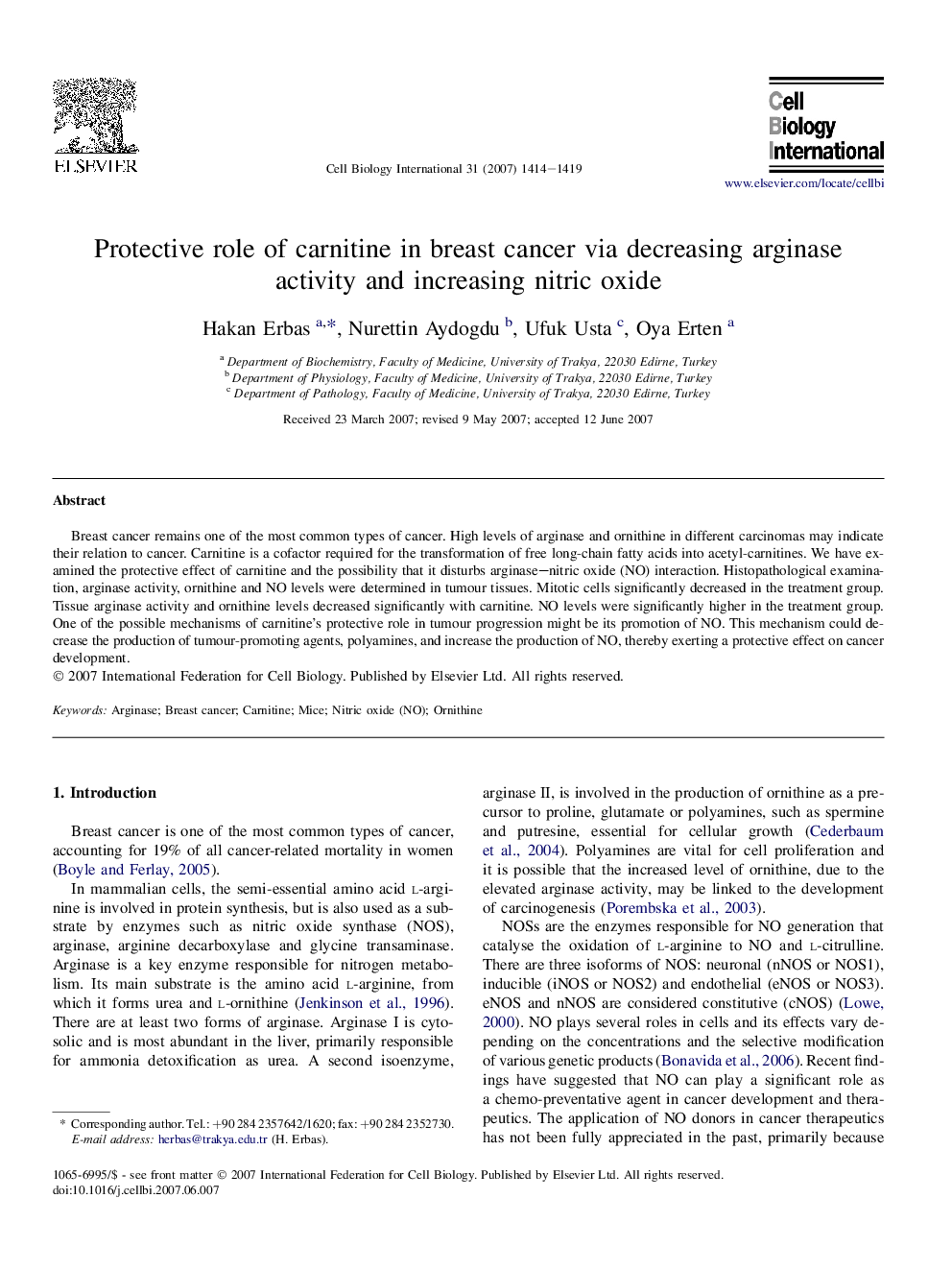| Article ID | Journal | Published Year | Pages | File Type |
|---|---|---|---|---|
| 2067610 | Cell Biology International | 2007 | 6 Pages |
Abstract
Breast cancer remains one of the most common types of cancer. High levels of arginase and ornithine in different carcinomas may indicate their relation to cancer. Carnitine is a cofactor required for the transformation of free long-chain fatty acids into acetyl-carnitines. We have examined the protective effect of carnitine and the possibility that it disturbs arginase-nitric oxide (NO) interaction. Histopathological examination, arginase activity, ornithine and NO levels were determined in tumour tissues. Mitotic cells significantly decreased in the treatment group. Tissue arginase activity and ornithine levels decreased significantly with carnitine. NO levels were significantly higher in the treatment group. One of the possible mechanisms of carnitine's protective role in tumour progression might be its promotion of NO. This mechanism could decrease the production of tumour-promoting agents, polyamines, and increase the production of NO, thereby exerting a protective effect on cancer development.
Related Topics
Life Sciences
Biochemistry, Genetics and Molecular Biology
Biophysics
Authors
Hakan Erbas, Nurettin Aydogdu, Ufuk Usta, Oya Erten,
